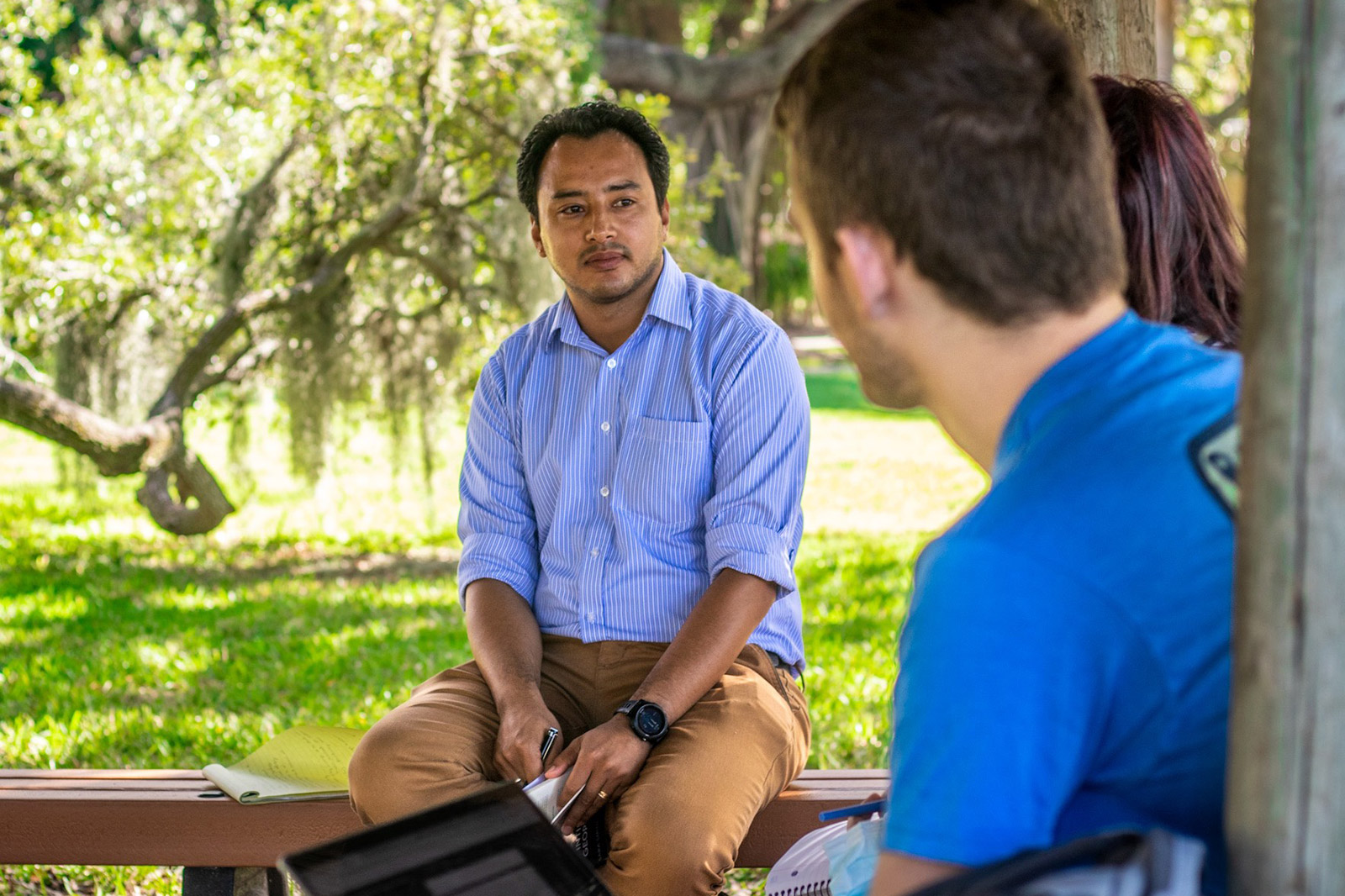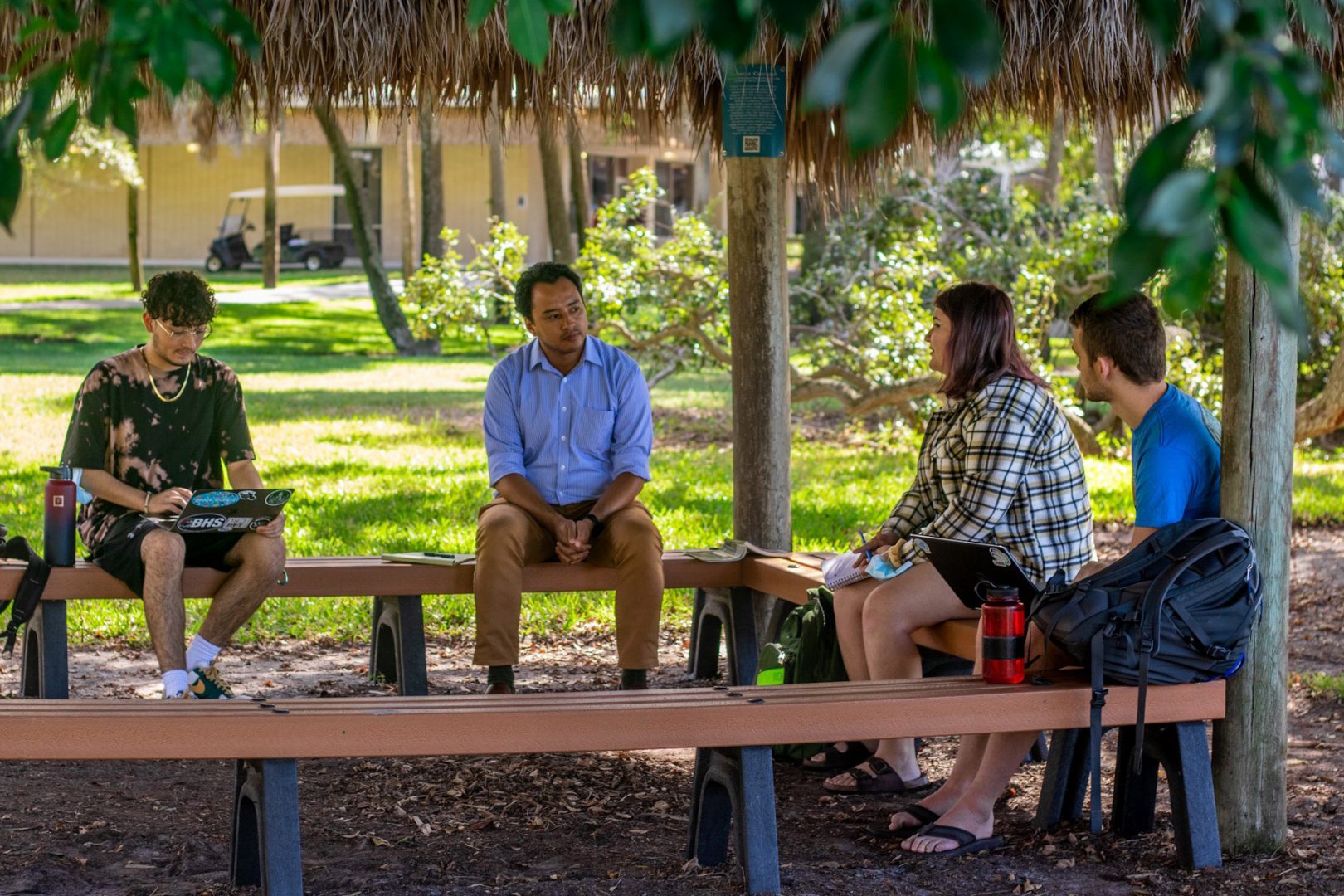In a late-October virtual presentation to Eckerd College Predoctoral Fellow Rupak Shrestha’s Borders and Belonging class, a scholar in exile brought to life the precarity of the relationship between China and its surrounding nations.
“We read a lot about conflicts, persecution and suppression of freedom,” Shrestha explains. “To have my students be able to hear from someone who has really lived that experience adds a lot to their understanding. I hope something like this continues.”
The visiting lecturer was Eckerd’s first campus speaker from Scholars at Risk, an international network of colleges and universities dedicated to helping academics who must leave their home countries in order to safely continue their research. Vice President for Academic Affairs and Dean of Faculty Suzan Harrison, Ph.D., sought to bring Eckerd into the network prior to the pandemic, but realized the goal only this fall with the help of Fellowship and Scholarship Advisor Kat Robinson, Ph.D., who will be promoted to Assistant Dean of Faculty on January 1.
Robinson contacted the organization and coordinated with faculty on campus to bring a scholar for three class visits and a College Program Series lecture open to all of campus. Managing the details was tricky. The scholar’s likeness couldn’t be used to promote the event, the lecture couldn’t be recorded, and he wouldn’t even be logging in to the platform using his own name to prevent his home government from tracking his work, Robinson says. “It went very well,” she adds. “The organization put a lot of precautions in place to protect the scholar.”
In addition to Shrestha’s class, the scholar visited Assistant Professor of Political Science Allison Quatrini’s Chinese Environmental Politics Class and Professor of Political Science Mary Meyer McAleese’s Senior Seminar in International Relations and Global Affairs. Each of the classes read some of the scholar’s work, which examined the relationship between the Chinese government and Tibetan farming communities through a grassland environmental protection policy. The findings suggested there was no consensus among the populace; some gladly accepted subsidies in exchange for following Chinese rule, and others self-immolated in protest.
Eckerd students engaged with the lecturer to find out more about his research and also, personally, what it is like to be in exile, possibly never to return home.
“I think it’s important that our students see that our colleagues around the world don’t have the same opportunities and academic freedoms we do,” Quatrini says. “There could be consequences for doing this sort of research.”
Meyer McAleese says she hopes the program continues and brings in scholars from across disciplines to show students the global situation.
“It will raise general awareness. Our Eckerd bubble is lovely, but there are many scholars around the world that don’t have the privilege of free expression,” she explains. “Scholars at Risk is vital as the rise in authoritarianism, misinformation, disinformation, and the questioning of science and expertise continues. This program helps our students understand how serious and widespread these issues are.”
Robinson says Eckerd plans to continue to engage with Scholars at Risk, bring lecturers to campus and possibly one day host an exiled scholar in a short-term visiting faculty position.
“If that were to happen, that would be really great,” Shrestha says. “Eckerd really values experiential learning. A scholar with different lived experience, someone in exile, just adds to the expertise they would bring. It’s a tremendous blessing for the students to learn.”














